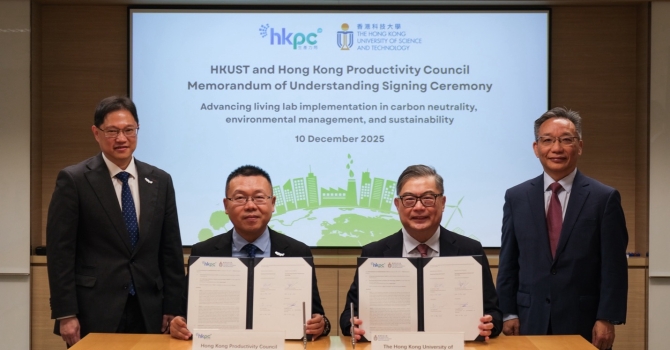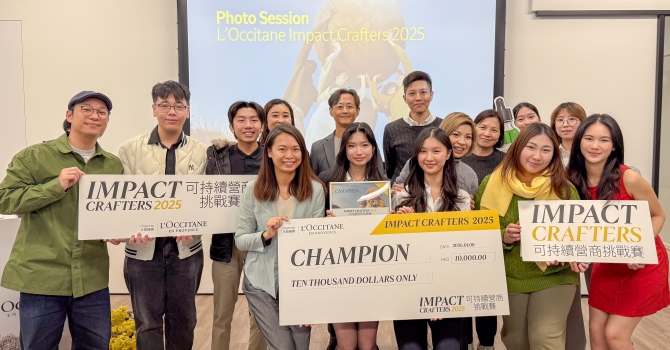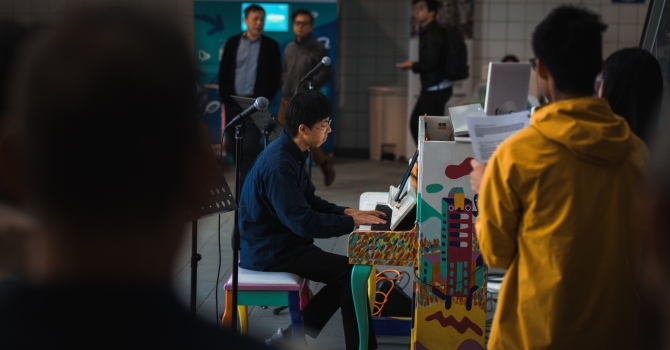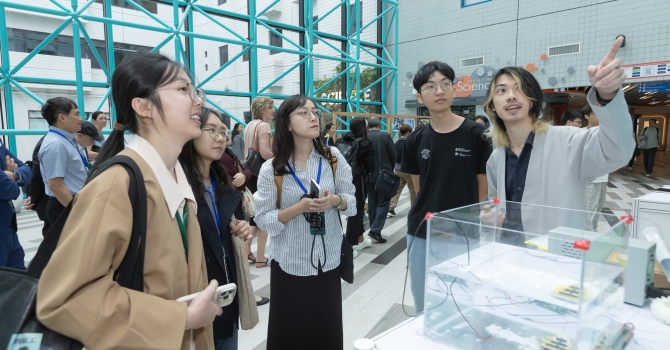Sustainability Thinking Course Driving Behavioral Change on Energy
Last semester, students from a new hands-on course applied interventions to shift energy consumption behaviors of hall residents.
A new 3-credit course, ENVR 3010G Sustainability Thinking was offered in last spring semester. This hands-on course was designed for students who would like to learn more about sustainable behaviors and apply sustainable thinking in a real-life project.
The course consisted of two parts: learning and application. In the first part of the course, students learned about sustainability thinking concepts such as sustainability decision-making, sustainability thinking blunders (barriers to act sustainably), futures thinking, social norms and behaviors, green buildings and role of identities.
The second half of the course focused on group project of a marking campaign to reduce energy consumption of student hall residents within a three-week period.
The course partnered with Blue Sky to install meters on five floors (Floor 3,6,8-10) in UG Hall VI. Students were able to see real-time energy data of the floors and the rooms and map out the intervention campaigns based on the data collected to shift behaviors towards a sustainable manner.
One of the students who attended the course, Jasmin Cengeloglu, shared that they launched the invention campaign on Floor 6 with four key objectives: reduce energy consumption of floor 6, encourage collaboration among residents to reduce energy consumption, help residents realize their day-to-day energy consumption and how they impact the hall as an individual and apply intervention strategies learnt in class.
The group focused on human identity and community-based social marketing. They have applied financial incentives (rewarding the top three rooms with the most absolute reduction), bringing the floor residents together as a community and getting the residents acquainted with the campaign. The group also collected residents’ energy consumption behavior information through launch event and closing event and received feedback on how the residents would like to be engaged.
Common rooms energy consumption made up 18% of the whole floor total consumption. To address the energy wastage, the group even had an idea to use the common room as a quiet study room area and make the common rooms warm and welcoming. Jasmin’s group even put up posters with captions such as “75% of the 6th floor residents use less than 5 hours of AC every day, and you?” to create peer pressure and social norm even the claim is not yet realized. Even though the total energy consumption was not reduced at the end of the campaign, it has proved that financial incentives do not necessarily work when our expected outcome from residents was behavioral change. For successful behavioral change, barriers to act sustainably should be eliminated and a campaign that focuses on social norms and stigmas should be created.
Student testimonials:
“Embedding sustainability into our daily routine is a multi-faceted problem with no direct solution. This course allowed me to tackle this challenge with students from different disciplines on a small scale project, and I hope our findings can help guide and inspire other approaches to sustainability” - Shania Shahrin, CIVL, Year 4
“This course has taught me to see sustainability challenges from many different perspectives: the moral side, the technical challenges and our behaviors as individuals. I hope that by taking this course more students can grasp the complex issues revolved around sustainability thinking.”
- Jasmin Cengeloglu, EVMT, Year 4



